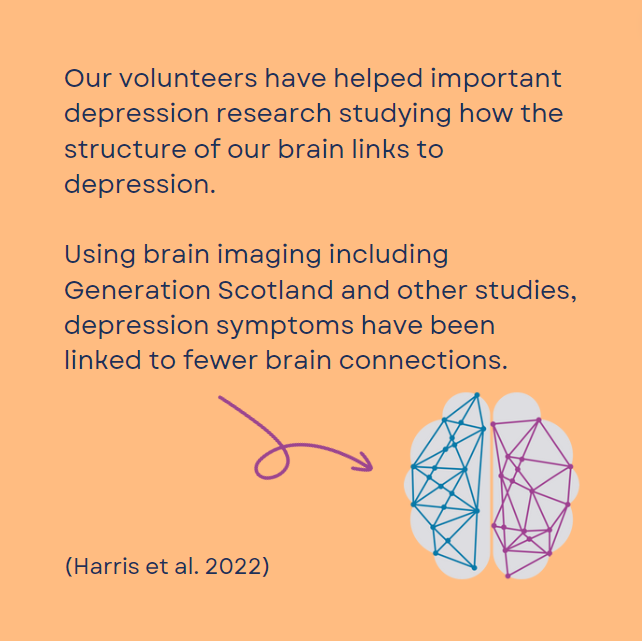GS volunteers help to develop and use cutting-edge tools to find and treat major depression
Depression is a complicated disorder, so Generation Scotland (along with other international researchers) are bringing together large samples, brain images (MRI) and new machine learning models (AI) to identify brain markers of people with depression and develop individual treatments. This important project is only in its first stages. This ‘dimensional’ and collaborative approach will be vital to understanding and treating depression as well as other diseases.
This study focuses on developing neuroimaging-based biomarkers for major depressive disorder (MDD) at the individual level. Currently, MDD diagnosis relies on symptom-based criteria, and the disorder is seen more as a set of symptoms rather than a disease with a known cause. This makes it challenging to predict treatment response accurately for each patient. Additionally, neuroimaging studies are often complicated by factors like medication use and varying symptom states.
To address these challenges, researchers have formed a consortium called COORDINATE-MDD. This consortium aims to identify patterns of brain alterations in MDD using advanced imaging techniques and machine learning algorithms. They're pooling together data from diverse sources, including multi-ethnic community populations, different types of MDD (first episode, recurrent), and individuals both in depressive episodes and in remission. The neuroimaging data include structural MRI, resting-state functional MRI, and PET scans.
The researchers are using cutting-edge analytical methods to extract meaningful information from the imaging data. They're focusing on creating a dimensional coordinate system that captures the heterogeneity of MDD at both structural and functional levels. By deeply phenotyping participants and analyzing treatment outcomes, they hope to identify specific neural patterns associated with MDD and predict individual responses to treatment.
The consortium's approach involves iterative testing of these neural dimensions in different samples to ensure reliability and specificity. They're also emphasizing the importance of harmonizing data from multiple sites to account for variations in imaging protocols and scanners. Ultimately, the goal is to develop imaging signatures that can improve our understanding of MDD and lead to more personalized treatment strategies.
Read the full paper on BMC Psychiatry


